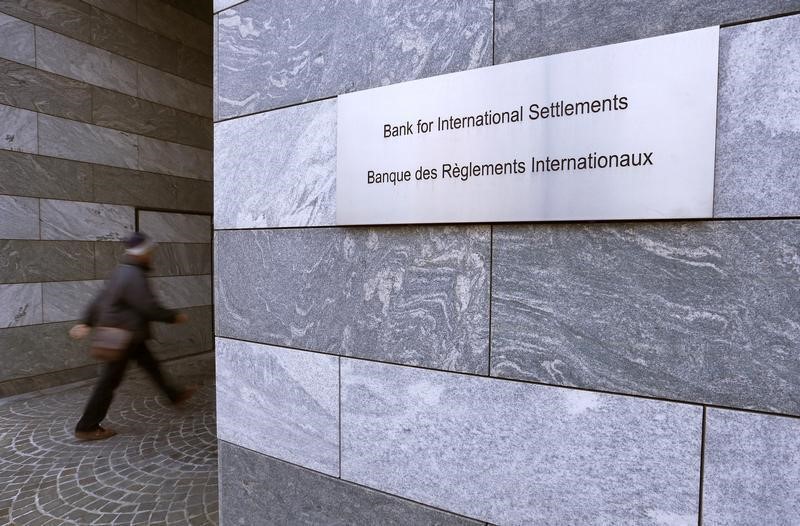By James Saft
NEW YORK (Reuters) - (James Saft is a Reuters columnist. The opinions expressed are his own)
Funds conducting off-exchange trades within their own fund family are likely favoring their “stars” at the expense of the also rans.
As usual, unsuspecting investors are left paying the bill.
A Bank for International Settlements paper, published in August, shows evidence that this form of “dark market” trading is almost certainly not always being done in a way fair to all investors in a given fund family.
For many years, funds within the same corporate family of funds have been allowed to “cross-trade”, a process where one fund which wants to sell a security then exchanges it with another which wants to buy, never actually using the open public markets.
While 90 percent of these trades pay no commission, and are therefore theoretically better for clients, the practice has a checkered history.
Before new regulations were put into place in 2004, cross trades were, on average, being done at significantly less advantageous prices than could be had on public markets. That’s improved, but still at issue is the extent to which fund families use cross-trading as a means to favor their best performing or most lucrative funds.
“We offer support to the hypothesis that star funds benefited from cross-trading at the expense of junk funds,” according to the working paper for the Bank for International Settlements, which acts as a central bank to central banks.
( https://papers.ssrn.com/sol3/papers.cfm?abstract_id=2831690 )
“This strategy had relevant implications for fund ranking, fund selection, and fund manager evaluation. Our results suggest that fund alphas potentially misrepresent the real ability of fund managers to create value for their investors.”
The study used a sample of trades done in this way by U.S. asset managers between 2004-2010.
Fund management companies have a motivation to favor some of their funds over others, either because they charge higher fees or are outperformers which will attract the lion’s share of inflows.
“Tying cross-trade level data to fund performance, we find that cross-trading potentially boosted the risk-adjusted performance of star funds by around 1.7 (percentage points) per year on average (causing an equivalent loss for the least important funds). This result casts doubt on the fraction of performance delivered by mutual funds that is really due to skill,” according to authors Alexander Eisele of University of Lugano, Tamara Nefedova of Université Paris-Dauphine and Gianpaolo Parise of the BIS.
LIE DOWN WITH AGENTS, WAKE UP WITH ISSUES
That 1.7 percentage point per year “reallocation” of returns from one fund to another is quite significant, given that it is itself far higher than the typical equity management fee, and a chunky percentage of an overall annual return in an average year.
This is a classic example of the kind of “agency issue” endemic to fund management in which investors hire managers as their agents to act in their best interests and then have only very imperfect means of making sure they are not self-dealing.
There are plenty of caveats here, both because the identities of the funds cannot be known with complete certainty and because the effects appear to have diminished after regulatory reform.
It is also worth noting that cross-trading went from 6.0 percent of total trading activity before the 2004 reforms to below 1.0 percent today.
The study also found that cross-trades varied from market benchmark prices by more in stocks which were illiquid and highly volatile which may be expected.
More concerning was that cross-trades were further off public market levels as well when the asset manager had weak governance, larger internal markets, and strong incentives for reallocating.
These cross trades were also more likely to be struck at either the highest or lowest price of the day, suggesting that they were sometimes being priced after the fact in order to pad one fund’s performance at the expense of another.
This report is reminiscent of a May study which found it highly likely that fund managers who run mutual funds and hedge funds at the same time, or side-by-side, were similarly shifting performance towards hedge funds, which pay them better.
Mutual funds with at least one side-by-side manager underperform those without any by 9.6 basis points per month, or 1.15 percentage points a year, using a standard measure of outperformance, or alpha, according to the study.
( https://papers.ssrn.com/sol3/papers.cfm?abstract_id=2774273 )
One clear way to help the situation would be to require more granular disclosure of trading allocations of all sorts, the better to allow regulators and investors protect their interests.
Until that happens, it may make sense to be wary of fund families, and especially their funds which are underperforming.
(James Saft)
